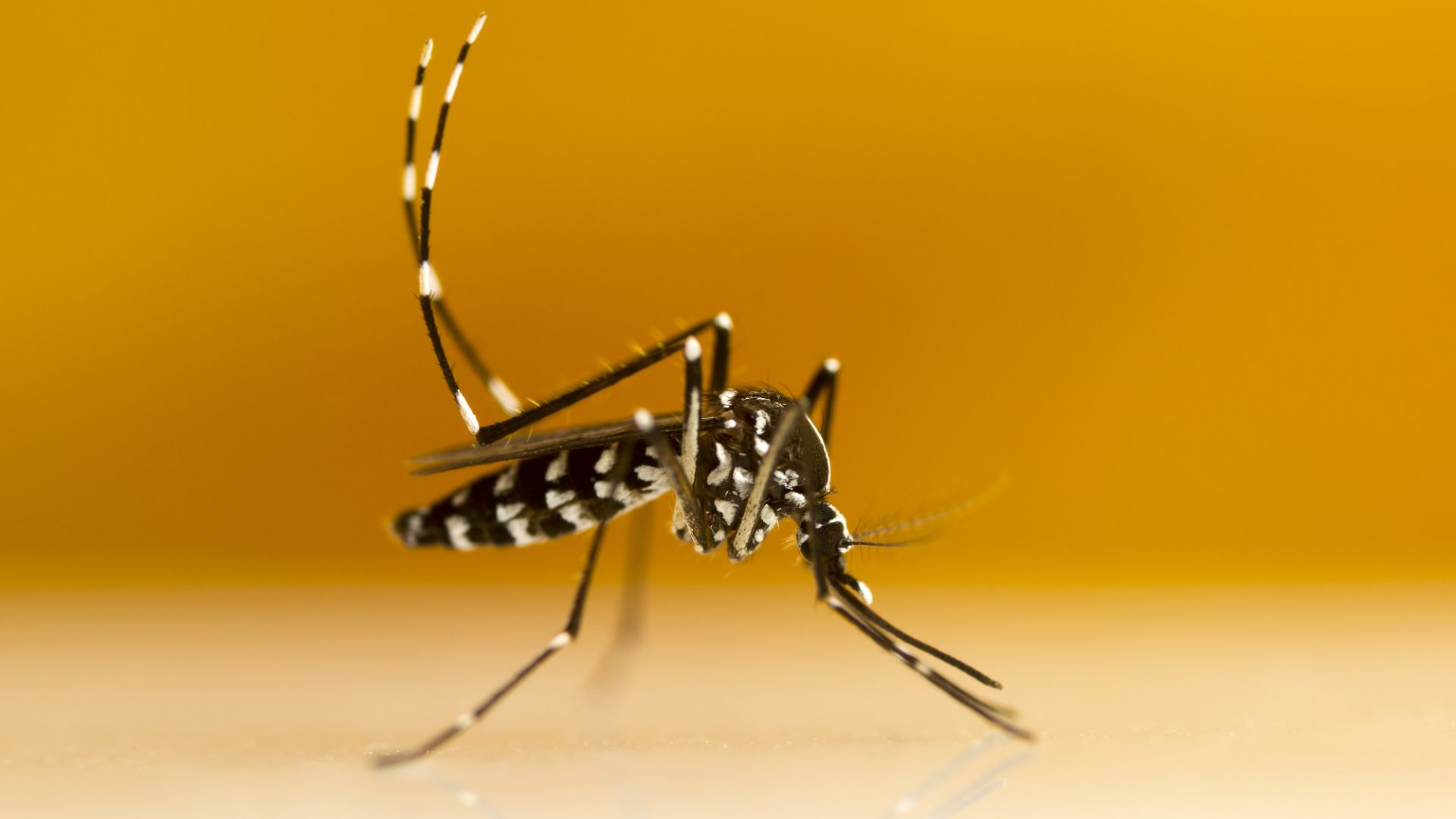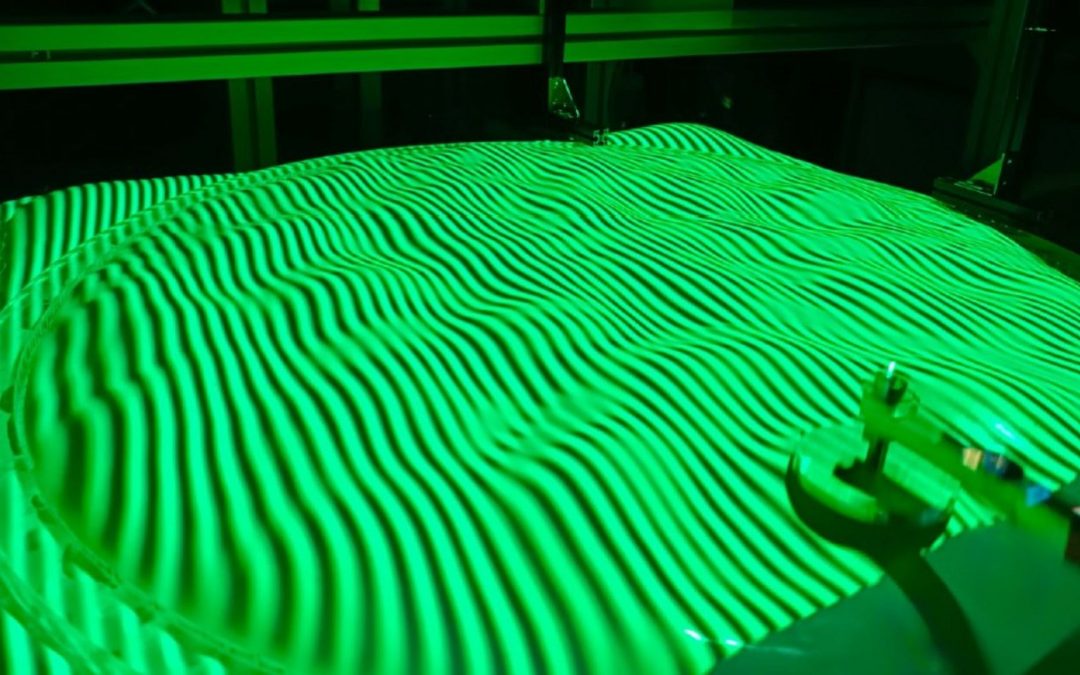The tiger mosquito Aedes albopictus, native to Southeast Asia, is one of two vectors for transmission of the chikungunya virus to humans. Scientists at Université Paris Cité and the Institut Pasteur have shown that this mosquito can acquire the ability to transmit the chikungunya virus as effectively at 20°C as at 28°C. The spread of the tiger mosquito in temperate climates could therefore result in the spread of the chikungunya virus in those regions.

Aedes albopictus mosquito
© gordzam – stock.adobe.com
The recent emergence of vector-borne diseases has marked a turning point in public health, as they are now affecting regions that are increasingly distant from endemic areas. This is due to changes in the environment and the increase in trade and travel between continents. The chikungunya virus was first reported in Europe in 2007 during an epidemic in Italy. The first indigenous cases of chikungunya in the south of France were observed in the autumn, first in 2010 and again in 2014 and 2017[1]. The question inevitably arises of the effects of climate, and in particular temperature, on the transmission of pathogens by mosquitoes.
In this study, scientists from the Institut Pasteur and Université Paris Cité looked at the transmission of the chikungunya virus by the tiger mosquito Aedes albopictus at an ambient temperature of 20°C or 28°C. The minimum temperature recorded during recent epidemics in continental Europe was 20°C. 28°C is the average temperature in tropical countries where the virus usually circulates.
Using tiger mosquitoes sampled in their natural habitat in Montpellier, the researchers analyzed the adaptive molecular mechanisms induced by temperature.
“We demonstrate that temperature profoundly alters gene expression and the bacterial microbiome of mosquitoes,” explains Anna-Bella Failloux, Head of the Institut Pasteur’s Arboviruses and Insect Vectors Unit and last author of the study. The scientists observed different gene expression profiles at 20°C and 28°C in mosquitoes infected with the virus. Moreover, the microbiome of mosquitoes infected with the chikungunya virus is modified at 28°C, with a significant decrease in Wolbachia bacteria correlated with an increase in Serratia bacteria contributing to viral transmission. The Wolbachia bacterium inhibits viral replication and the Serratia bacterium promotes infection of the mosquito’s midgut by the virus.
Temperature also affects the viral genome in infected mosquitoes. “The genetic diversity of the chikungunya virus was also modified. All these changes induce molecular changes that result in effective transmission of the pathogen,” says Anna-Bella Failloux. “In this study, the Aedes albopictus mosquito was able to transmit chikungunya as effectively at 20°C as at 28°C, but via very different molecular processes. This is a true example of mutual adjustment between virus and vector, in this case the tiger mosquito, in response to environmental conditions,” adds the scientist.
The tiger mosquito is now present in temperate regions such as the American continent, temperate Asia and nearly 28 European countries, including France since 2004. In a few decades, it has spread across four fifths of France. “Chikungunya is therefore likely to continue to spread in areas where the tiger mosquito is established. In the absence of vaccines and treatments, it could become a public health problem in a greater number of countries with temperate climates,” concludes Anna-Bella-Failloux.
[1]At present, all autochthonous cases reported in mainland France derive from imported cases and are not derived from an enzootic transmission cycle. In 2010, the imported cases were in two individuals who had recently returned from Rajasthan and instigated a chain of transmission that led to the first indigenous cases recorded in mainland France.
Read more

Lévitation magnétique : un modèle simple pour un phénomène complexe
Une équipe du laboratoire Matière et Systèmes Complexes (MSC - Université Paris Cité/CNRS), en collaboration avec le laboratoire de physique de l’ENS Lyon, a décrit, pour la première fois par un modèle simple, le mécanisme de la lévitation magnétique d'un aimant placé...

Été 2025 : profitez de Paris à prix mini avec le Pass Jeunes !
Vous avez moins de 25 ans ? Cet été, ne manquez pas le Pass Jeunes 2025, un dispositif gratuit de la Ville de Paris qui vous donne accès à 41 activités culturelles, sportives et de loisirs, gratuites ou à tarifs très réduits, jusqu'au 30 septembre 2025. Étudiantes et...

Boris Chaumette, la science au service de la santé mentale
Psychiatre et neuroscientifique reconnu, Boris Chaumette œuvre au développement d’une évolution médicale majeure : la psychiatrie de précision. Sa sélection au programme franco-britannique Young Leaders 2025 met en lumière l’excellence de ses travaux et constitue une...

Quand les ondes imitent le comportement d’un gaz
Marlone Vernet et Eric Falcon, physiciens au laboratoire Matière et Systèmes Complexes (MSC - Université Paris Cité/CNRS), ont observé un phénomène étonnant : dans un système agité de manière aléatoire, des ondes peuvent se comporter comme les molécules d’un gaz....
